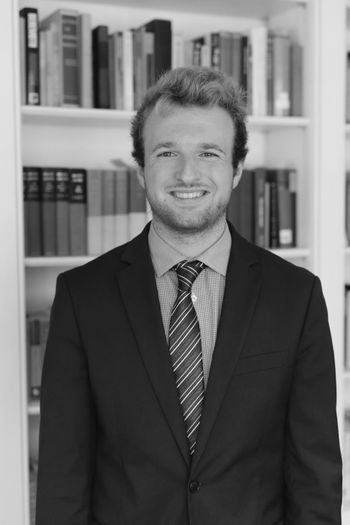Princeton president digs in heels after Trump revokes $210 M over anti-Semitism concerns, saying he’s protecting ‘academic freedom’
The Trump administration suspended $210 million from the Ivy League university after Campus Reform Editor-in-Chief Dr. Zachary Marschall filed a Title VI complaint in 2024 against the school.
Princeton is one of several universities that has seen the potentially permanent loss of hundreds of millions of taxpayer dollars.
The president of Princeton University in New Jersey will not make any changes to school policy following the Trump administration’s freezing $210 million to the university over anti-Semitism concerns.
The Trump administration suspended the funds as the result of a Department of Education investigation started in 2024 as the result of a Title VI complaint filed by Campus Reform Editor-in-Chief Dr. Zachary Marschall.
Marschall wrote that Princeton protesters chanted anti-Israel messages shortly after the Oct. 7 massacre, and that “The violent words of these protesters completely disregard the atrocities Hamas has already committed and promises to commit in the future against the people of Israel, including raping, murdering, and kidnapping civilians.” His Title VI complaint stated that Princeton allowed such anti-Semitism to continue with impunity.
Other universities are also facing similar funding freezes, such as Cornell ($1 billion), Northwestern ($790 million), and Brown ($510 million). The administration has also imposed a $400 million freeze on Columbia, which acceded to the White House’s demands in an effort to hold on to the funding, taking measures to preemptively contain future disruptive anti-Israel protests.
Princeton president Christopher Eisgruber, however, insisted that the school would not change its behavior in response to the potential loss of funds.
In a Sunday interview with National Public Radio, Eisgruber said: “We make our decisions at Princeton based on our values and our principles.” He added: “You know, I don’t want to pass judgment on what other universities do. These are extraordinarily difficult circumstances. But we’re going to stand strong for our values at Princeton, and I think we have a community that is united behind those values.”
When asked if he would want to “make any concessions,” Eisgruber replied: “We believe it’s important to defend academic freedom, and that’s not something that can be compromised.”
Eisgruber also expressed his thought that there will be more resistance to the White House’s policies regarding higher education.
“I think there is growing recognition of the need to stand firmly for them, and I expect there will be other presidents and other universities that are doing so alongside us,” he continued.
Princeton’s campus life was severely disrupted during the 2024 anti-Israel campus protests.
Eisgruber himself was at the center of several controversies regarding the Israel-Hamas conflict and related protests on college and university campuses.
In December, he claimed that the university presidents of Harvard, MIT, and the University of Pennsylvania did not meet with “civility and respect” during their infamous testimony in the House of Representatives, at which they equivocated when asked by Rep. Elise Stefanik (R-N.Y.) if it was acceptable for students to call “for the genocide of Jews.”
In a January 2024 “State of the University” letter, Eisgruber also wrote that “Some people . . . have seized upon public outrage about antisemitism as a stalking horse for other agendas.”
Campus Reform contacted Princeton University for comment. This article will be updated accordingly.

